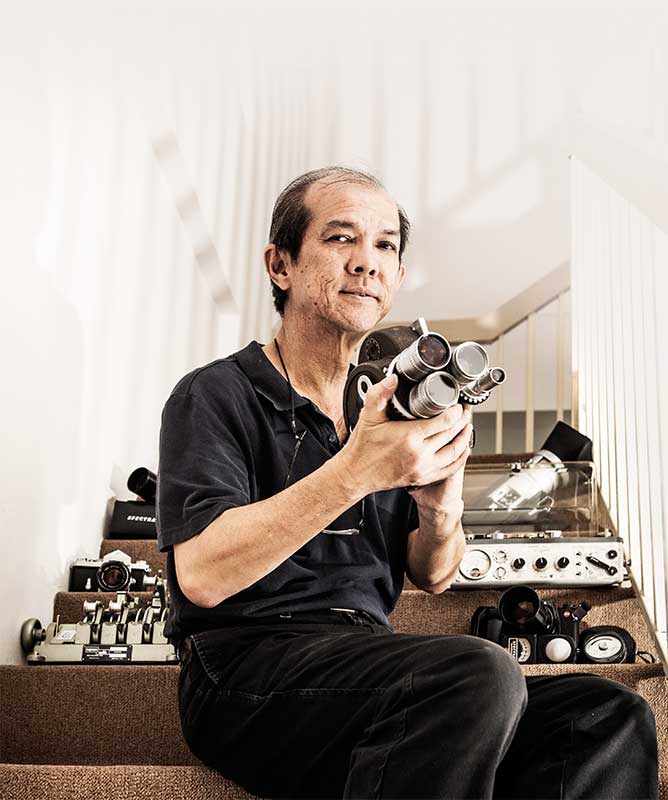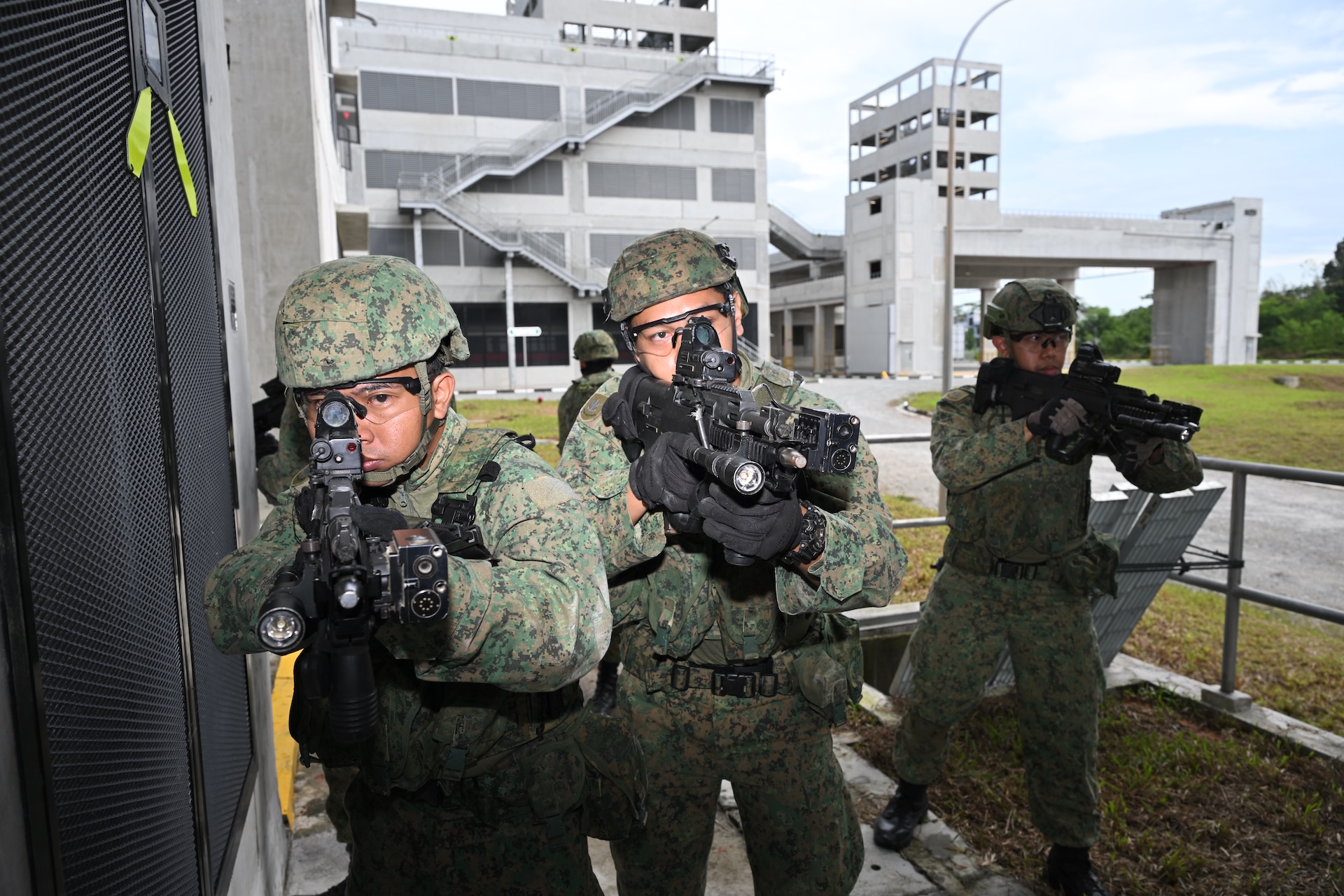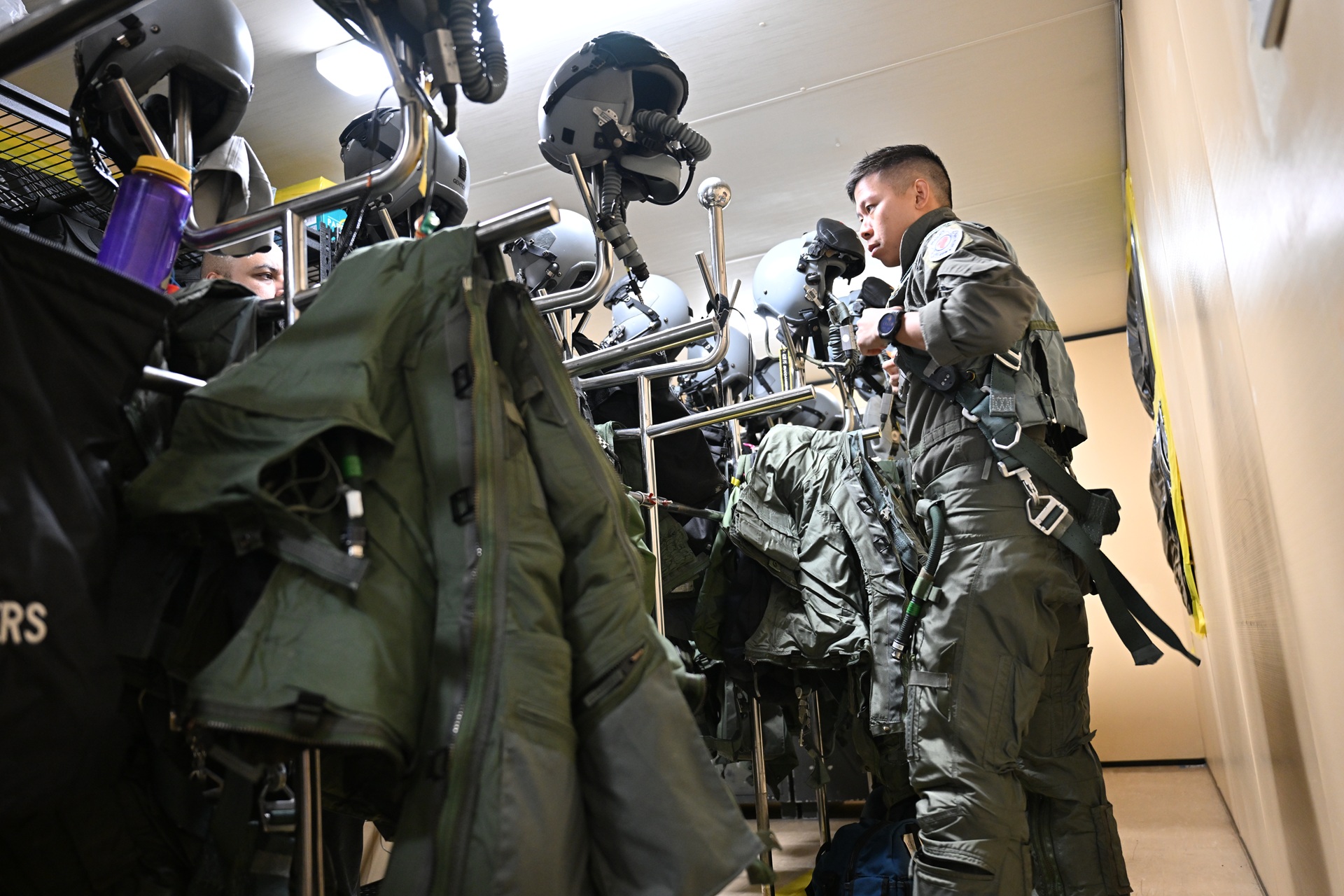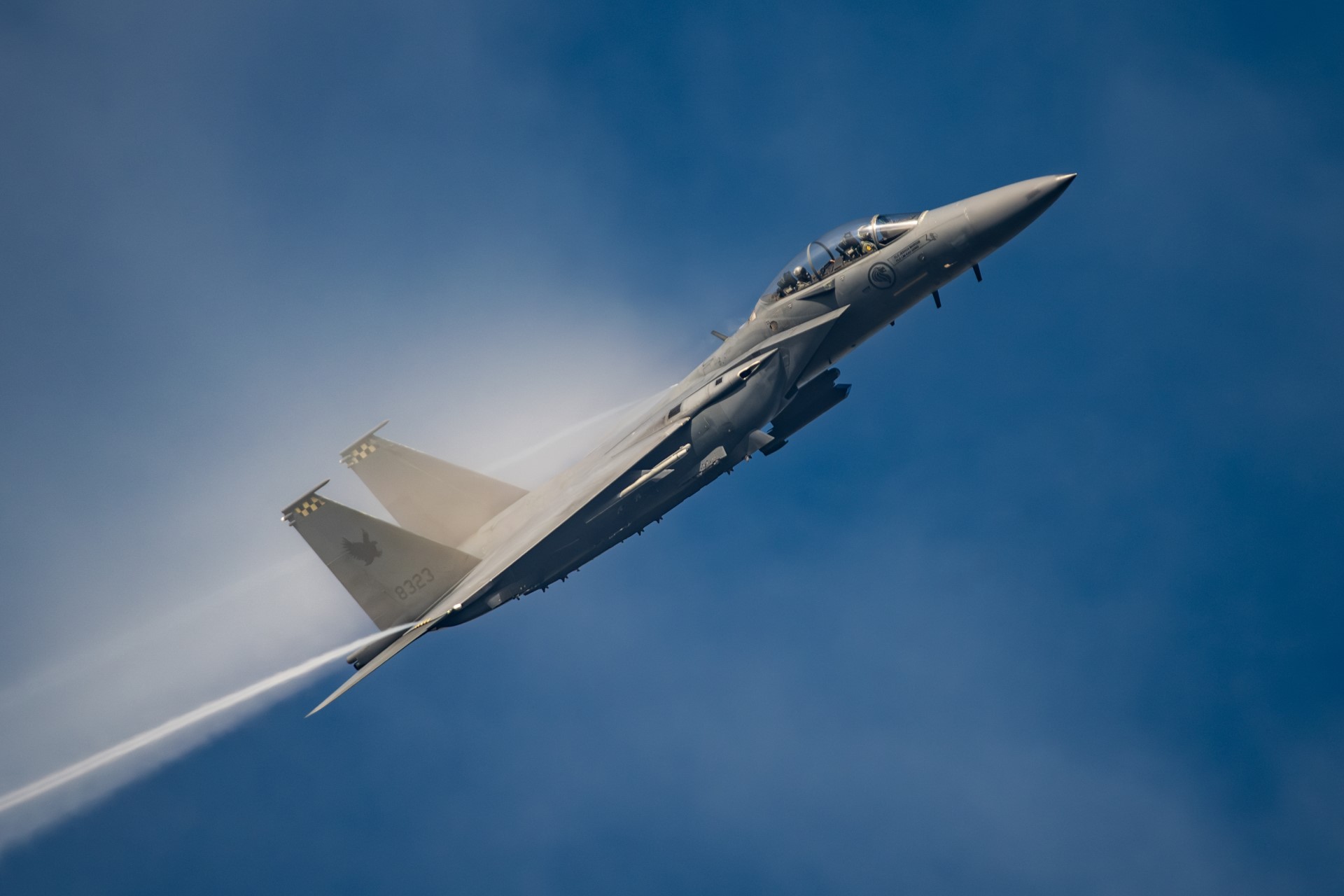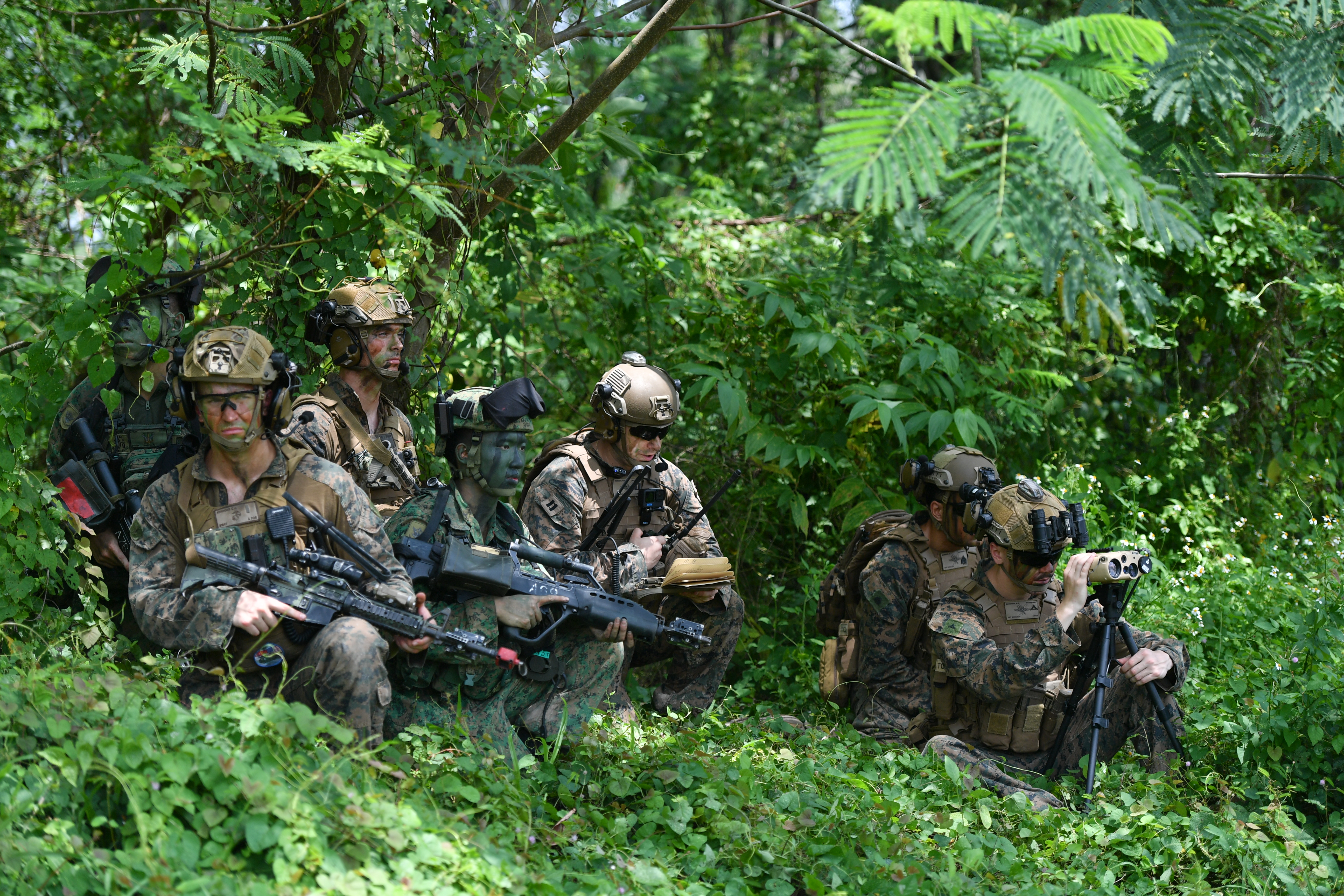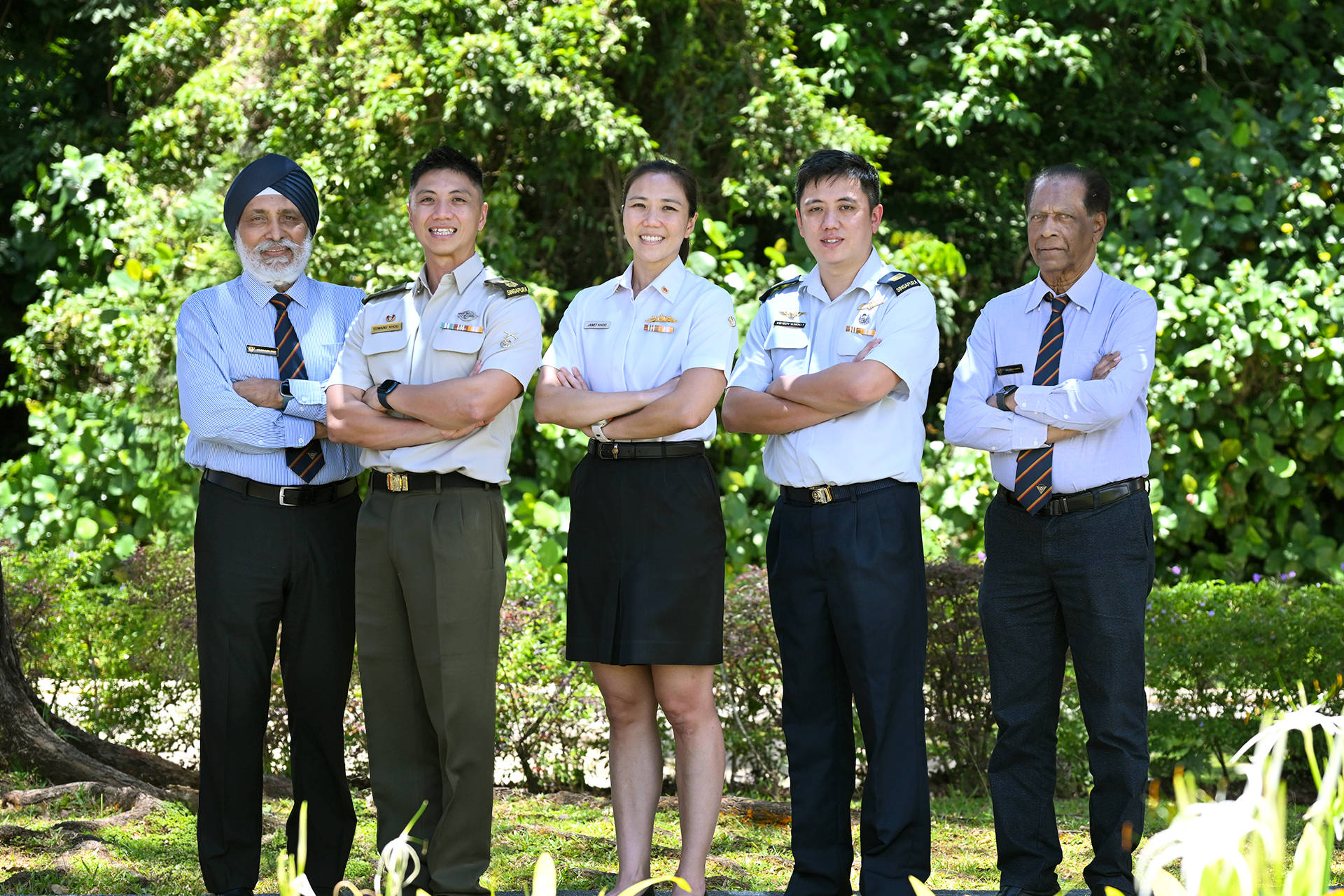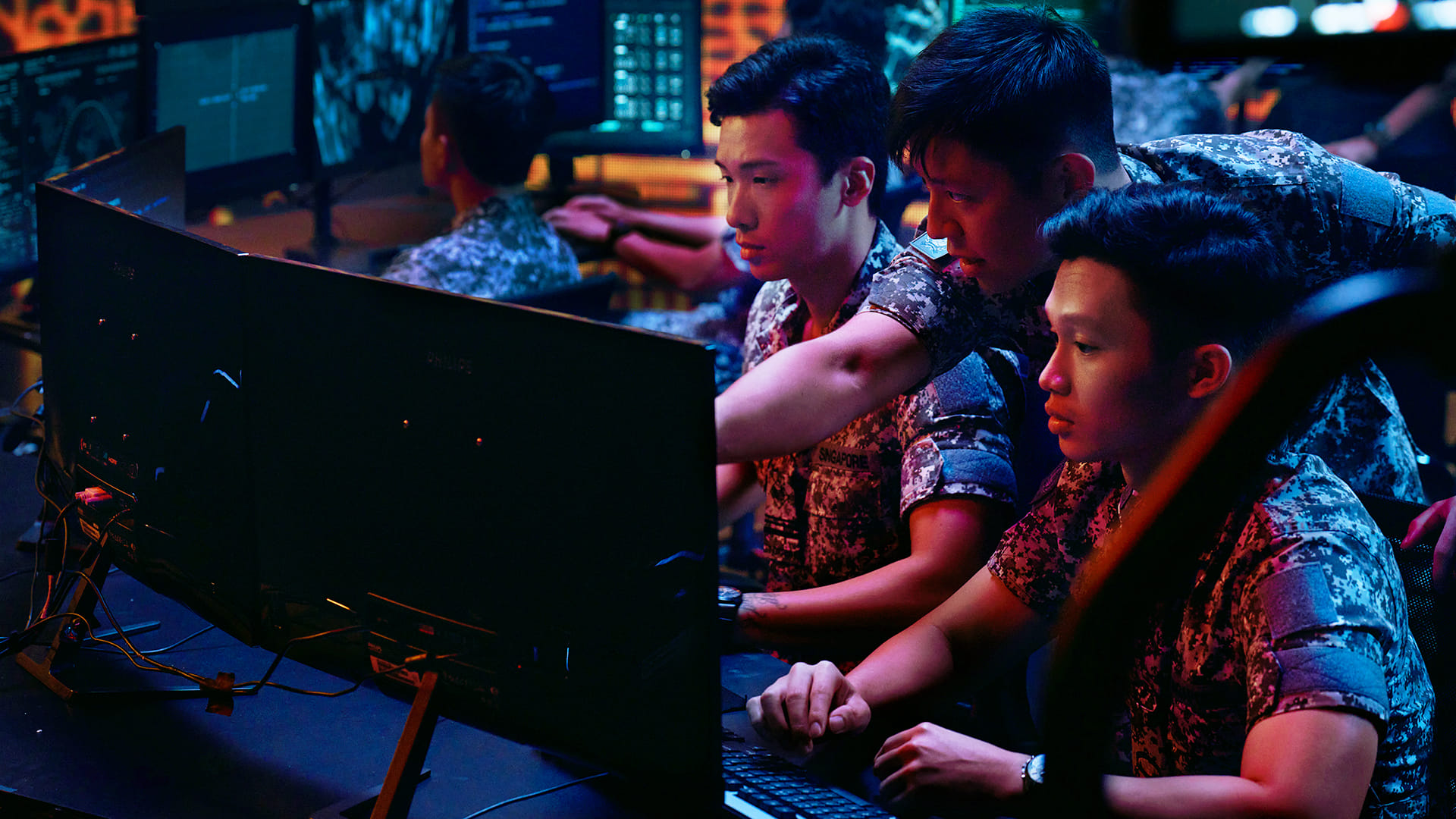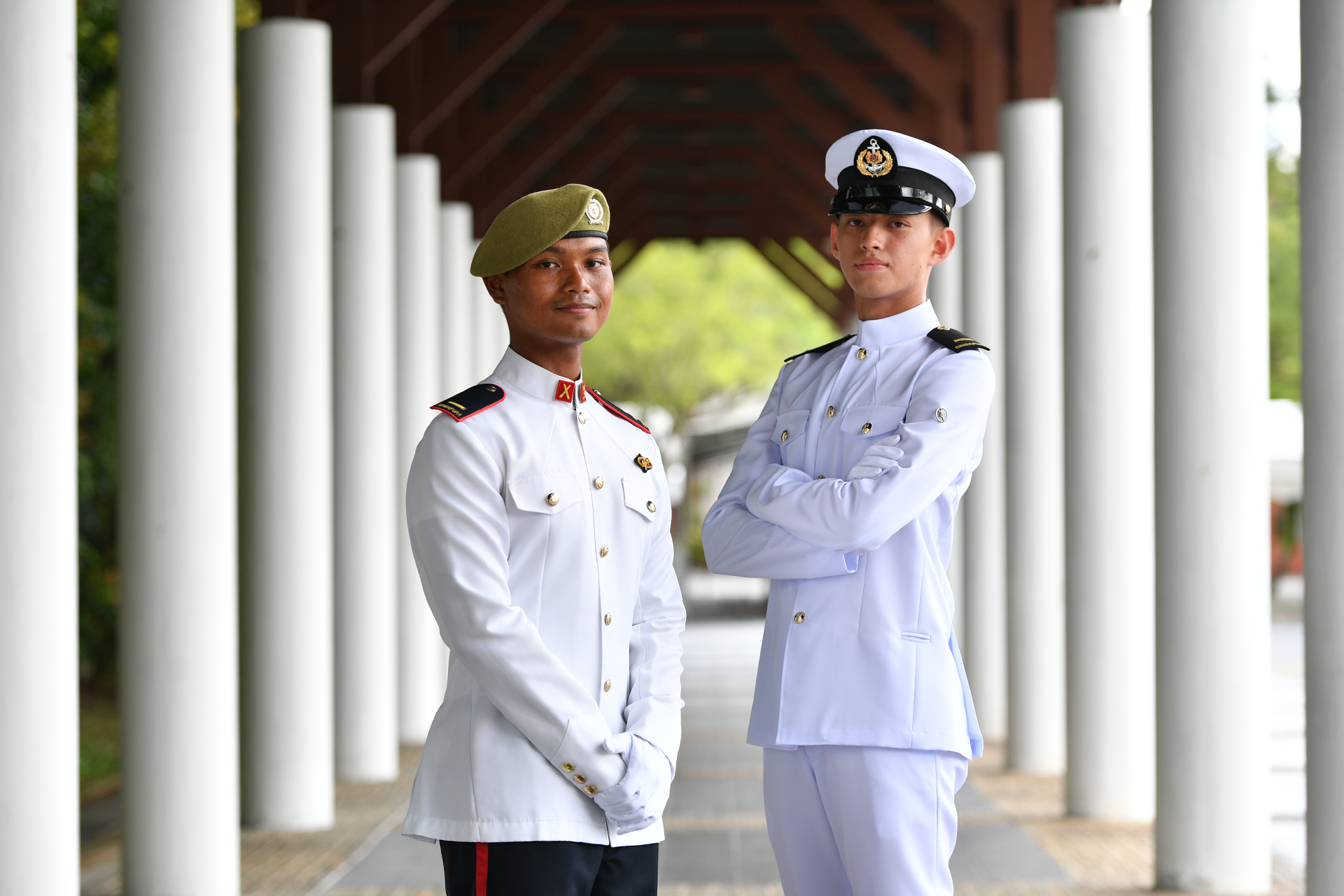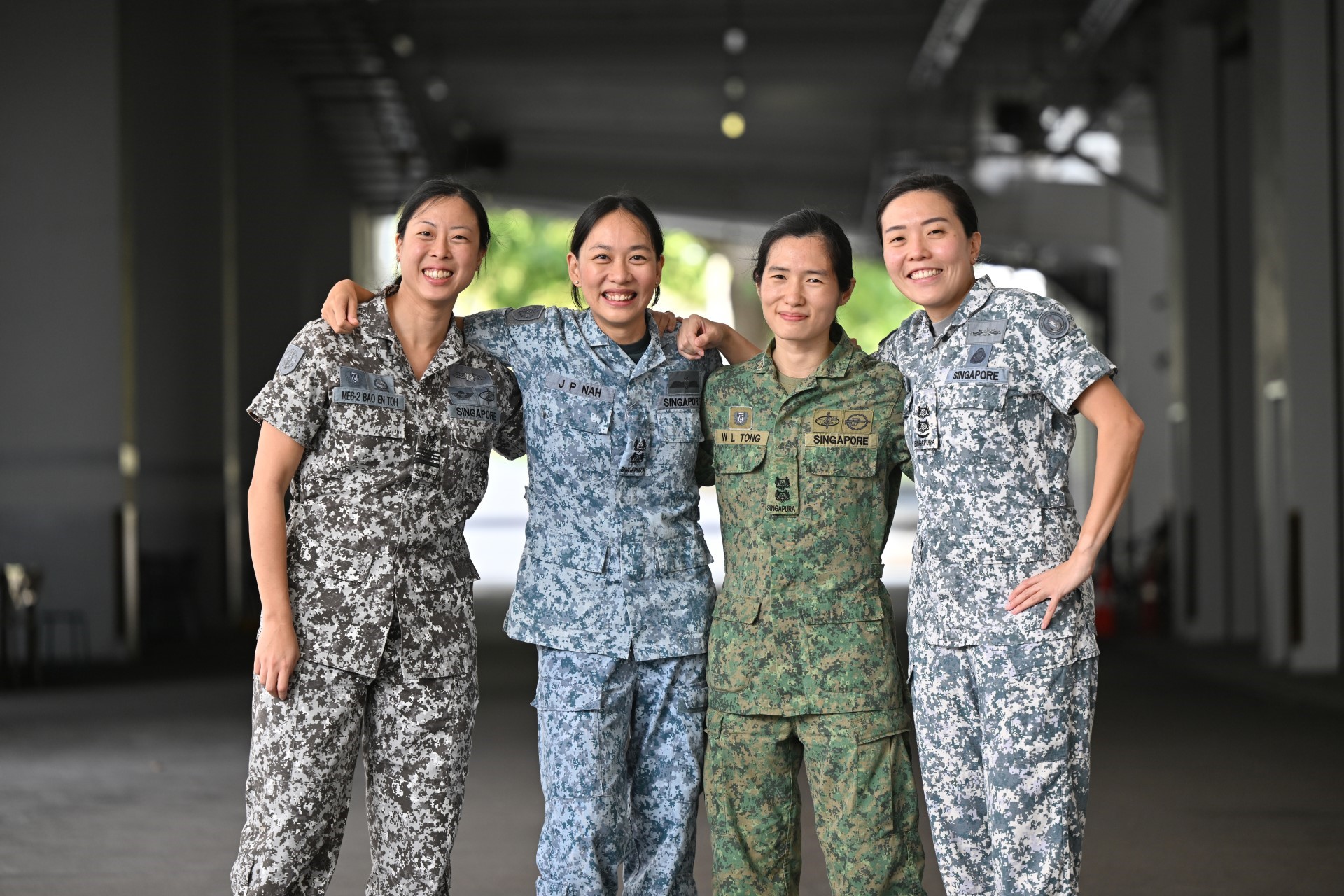THROUGH HIS LENS
STORY // Benita Teo
PHOTO // Shaun Ng & Courtesy of Freddy Yip
He spent his career telling stories of the Singapore Armed Forces (SAF) through video. Now, SAF Film Unit's (SFU's) Chief Cameraman Freddy Yip tells you his story.
As the SFU's Chief Cameraman, Mr Yip, 61, has spent the last 34 years telling the SAF's stories through his camera lens. When it comes to telling his own stories, though, he is much more modest.
But get him warmed up, and his stories will take you on a journey through the SAF's and Singapore's cinematic history!
Take one - The young filmmaker
To say that Mr Yip is a cinema buff is perhaps an understatement his flat is a treasure trove of film-making equipment, both vintage and modern. He estimates that he has 60 still cameras, 70 lenses and 10 vintage film cameras, as well as countless paraphernalia such as film projectors, sound boxes and film synchronisers!
His collection began 20-odd years ago, but it's fuelled by a passion for cinematography that spans almost half a century. As a schoolboy, he taught himself to make films through books and magazines.
He's even had to suffer for his craft: "In Secondary Three, I skipped recess to save up for a movie camera that cost about $200, and ended up with a perforated stomach ulcer!"
Mr Yip's love for film naturally landed him his first job at Cathay-Keris Films, where he worked as an assistant cameraman. It was there that he got a glimpse of Hollywood stardom: in 1978, actor Jack Lord was in Singapore to shoot the original Hawaii Five-0 series.
"I was attached to the camera crew for three weeks while they shot two episodes. I was the clapper boy/loader, the lowest rung; I had to load the reel, then run to the front with my clapperboard and mark the reel.
"But I was happy because I got to work with the Panavision camera, which was a piece of Hollywood equipment!" he recounted excitedly, a tinge of amazement still in his voice.
Take two - Scenes of the SAF
With the rise of video technology in the 1980s, the film industry began to decline, and on 1 Jul 1982, Mr Yip joined the SFU, a relatively young outfit that made training videos for the SAF. "During that time, a lot of soldiers were uneducated. If we wanted to show them how to operate machines, we couldn't use only English. So our videos came in English, Mandarin and Hokkien."
In those early days, video equipment was not readily available, and improvisation was often necessary. Mr Yip recalled having to record then-Chief of Defence Force Lieutenant-General (Ret) Winston Choo's workplan speech: "Two Majors were sitting on the floor in front of him with an overhead projector, and moving the pages up for him as he read off the projection on the wall!
"I told him, Sir, this doesn't work. You're looking above my camera instead of into it.' So we borrowed a teleprompter, and he could step on the pedal to scroll though the reel on which the speech had been typed."
Mr Yip also remembered tragic incidents. One of his most memorable experiences was during the SilkAir crash in Palembang, Indonesia in 1997, when he assisted in the coverage of the SAF's search-and-locate efforts.
The operation was an emotionally difficult one, not only because of the wreckage, but also because the crew was staying at the same hotel as the families of the victims.
"We witnessed their grief every day. But we needed to be professional and not carry their grief with us. So every night I told my crew, let's go and have a drink, forget about it, sleep, and start again the next morning. Otherwise, we wouldn't have been able to last (mentally). We are talking about weeks of searching."
He added: "I was very proud of our troops. They had to bear with the smell, and some days they would search and find nothing. They were not trained specifically for this, but they did it without complaint."
Take three - The future
Few are as fortunate as Mr Yip to be able to build a 42-year career around something they love. Has he ever considered being on the other side of the movie camera?
"Never. I love all things audio-visual, the movement and sound of images. What I'm most proud of is that I managed to do what I wanted to do I wanted to be a cinematographer."
And as he nears his retirement, what plans does he have for the future?
"If I could afford it, I would open a museum for all my film equipment!" he said with a laugh.
